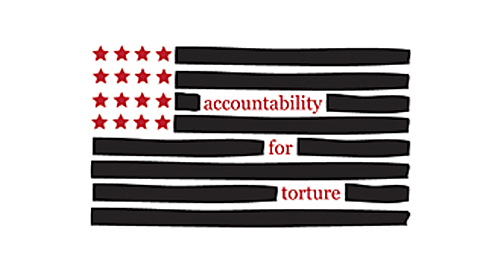International Day in Support of Victims of Torture: It's Time to Look "Backwards"


On this day 26 years ago, the international community committed to eradicating torture worldwide and the U.N. Convention against Torture came into effect. Since 1998, June 26 has marked International Day in Support of Victims of Torture, an occasion to commemorate the historic treaty, in which nations agreed to end torture, investigate and punish perpetrators, and provide redress to victims. Today we stand in solidarity with victims of torture everywhere.
Today of all days, we must also stop and think about the victims and perpetrators of U.S. torture. We know that during the Bush administration, many hundreds of people were abused or tortured by the CIA and Department of Defense, in Afghanistan, Guantánamo, Iraq, and elsewhere. Their cruel treatment was approved at the highest levels, including, based on his own admission, by then President Bush himself. Although President Obama signed an executive order reinforcing the ban on torture on his second day in office, his administration has decided to "look forward, not backward" at the Bush administration's torture policies, an approach that is both morally and legally wrong. As a result, torturers have escaped criminal and civil liability, and the suffering of many hundreds of victims has gone unacknowledged. This approach fails U.S. and international law, it fails American values—and most critically, it fails the victims of these abhorrent crimes.
In honor of International Day in Support of Victims of Torture, the ACLU has formally laid out four steps the Obama administration must take to begin to redress the abuses perpetrated by U.S. officials. You can read about them in more detail here. On the same page, you'll also find an infographic detailing the countries that cooperated with the U.S. torture program, with the efforts that each one has undertaken—or not—to reckon with this stain.
The four steps we lay out are:
- Apology & Compensation: Most victims of U.S. torture have received no official acknowledgment of their suffering, apology for the wrongs inflicted upon them, compensation for their mistreatment, or assistance in recovering from their physical and psychological injuries. This is a tragedy that must be corrected.
- Transparency: Much of what we know about the torture program comes from more than 100,000 pages of documents released in response to Freedom of Information Act requests filed by the ACLU, congressional oversight, and media reporting. (You can access all of those documents from our Torture Database.) But too much remains secret, including an extensive report by the U.S. Senate Select Committee on Intelligence (SSCI) into the use of torture and abuse by the CIA. The Senate committee should minimally redact and then publicly release the SSCI report and other key records about the program.
- Investigation & Prosecution: The United States has failed to hold criminally accountable any of the top officials who authorized or oversaw the use of torture. The U.S. government must open a full investigation, including an examination of the role played by the senior officials most responsible for the torture program. Where there is sufficient evidence of criminal activity, offenders should be prosecuted.
- Honor Courage: Many U.S. servicemembers and civilian officials risked their careers by objecting to official torture and other cruelty. However, the stories of these American heroes are largely unknown, even as officials who authorized brutal torture methods have escaped criminal and civil liability. A former top Bush Justice Department official, James Comey, who twice signed off on legal memos authorizing waterboarding and other torture tactics, was just nominated to head the FBI. President Obama should formally honor the public servants who, when our nation went off course, stayed true to our most fundamental ideals and international commitments.
By invoking the state secrets privilege and other procedural obstacles, the government has succeeded in persuading courts not to rule on the lawfulness of the Bush administration's torture program (see examples here and here). As a result, not a single victim of U.S. torture has had their day in a U.S. court. This sends the dangerous signal to government officials at home and abroad that there will be few consequences for torture and other brutality. It also undermines American credibility abroad as a defender of human rights. We can begin to heal the wounds our government has inflicted and to rebuild our reputation as a champion of human rights by recognizing, apologizing to, and compensating the victims of the cruel policies of the Bush administration.
International Day in Support of Victims of Torture presents us with an opportunity to stop and remember the many hundreds of people victimized by the United States. Honoring victims of U.S. torture requires meaningful action on all four of those tracks. Recognizing their suffering is a critical start.
Learn more about accountability for torture: Sign up for breaking news alerts, follow us on Twitter, and like us on Facebook.


